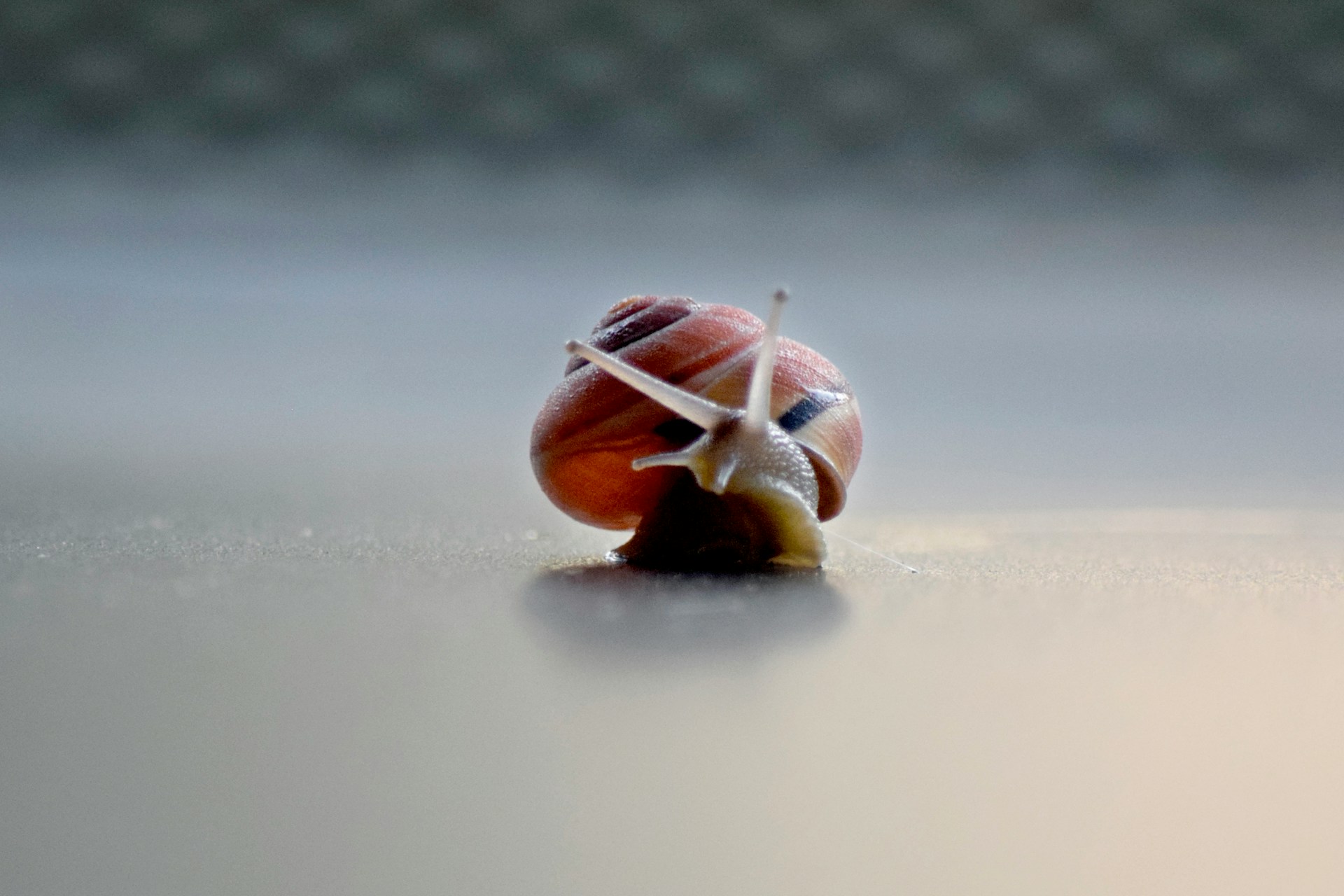XpatAthens
How To Celebrate A Quarantine Valentine's Day
“My husband works in the Middle East and it makes no sense to celebrate alone,” one of my clients told me recently.” “Since all this has started, both my partner and I have been working from home and we’re all day in our jumpers. Valentine’s won’t make a difference,” said another. “With three kids at home this will be just another crazy weekend,” added a third one.
- Instead of the classic chocolate cake, how about finding a recipe for chocolate chip cookies and baking them with your partner.
- Find your favorite songs and bring back the memories – the occasion and place you were when you first listened to them together. Geographical distance may separate you but fortunately the internet has the power to unite you. And while online shopping may not be on top of your list, it does help.
- Dance your favorite songs together and even better, include your children if you have any.
- Create your own unique card and surprise him/her.
- Remember where you met first, how you felt, the special circumstances and share your story with your children.
- Write down the characteristics you admire in your partner and recite them to him/her or give them to him/her to read.
- Remember some funny moments you’ve experienced throughout your relationship.
- Cook a meal together or with your kids if they are around – and yes, chips, beer, pizza and juices are all welcomed.
Put your imagination to work and you will find many different, beautiful and funny ways to celebrate. It does not matter what you do but how you do it. And even more how you do it not only this one day but every single day of the year. What really matters is that you recognize and accept and celebrate the person – and with the person – you love every day.
Originally Published on: Itsmylife.gr
Written by Nadia Georgiou.
If there’s a topic you’re interested in and would like to learn more about you may contact me via email. For more information about me and my work check the XpatAthens Directory or visit my website. Because this is your life!
Why Spending Time Alone Is Essential For Personal Growth & Well-Being
Originally published in Greek on: loveyourselfmagazine.com

Love Yourself is a comprehensive Greek media platform dedicated to embracing mindstyle as its fundamental essence. It advocates for a wholesome lifestyle that nurtures not only our soul, mind, and body but also promotes a positive and sustainable attitude towards the planet we call home. For more information, visit Love Yourself's website!
The Healing Power Of Music
Originally published in Greek on: loveyourselfmagazine.com

Love Yourself is a comprehensive Greek media platform dedicated to embracing mindstyle as its fundamental essence. It advocates for a wholesome lifestyle that nurtures not only our soul, mind, and body but also promotes a positive and sustainable attitude towards the planet we call home. For more information, visit Love Yourself's website!
The Benefits Of Slow Living: A Journey To Mindfulness & Inner Peace

- Mindful Presence and Inner Peace One of the most profound benefits of slow living is cultivating mindfulness. By consciously slowing down, you begin to experience the world in a deeper, more present way. This helps quiet the mental chatter that often accompanies a busy lifestyle, reducing anxiety and promoting inner calm. Practices like mindful eating, where you savor each bite and appreciate the food in front of you, can transform mundane activities into moments of gratitude and joy.
- Enhanced Emotional Well-Being The constant pressure to keep up with societal expectations can take a toll on mental health. Slow living invites you to step off that treadmill, reducing the strain of perfectionism and competition. By embracing a slower, more deliberate pace, you’ll find more space for emotional self-care, reflection, and self-compassion. This lifestyle fosters emotional resilience, allowing you to handle life’s challenges with greater ease and a balanced mind.
- Stronger Connections with Others In Greek culture, slow living often manifests in the form of long meals shared with family and friends. These moments of connection, away from distractions, are central to well-being. Slow living encourages deeper relationships by creating space for more meaningful interactions. Instead of rushing through conversations, you take time to listen, to engage, and to be truly present with loved ones—fostering stronger emotional bonds.
- A Deeper Connection with Nature Nature has always been a source of spiritual nourishment, and slow living encourages us to reconnect with the natural world. By taking the time to walk in nature, garden, or simply sit outside and enjoy the breeze, we not only reduce stress but also realign ourselves with the rhythms of the earth. This connection to nature offers a grounding experience, helping us to feel more centered and at peace with the world around us.
- Increased Creativity and Productivity Contrary to what some might think, slowing down doesn’t mean being unproductive. In fact, taking a step back often allows for greater creativity and more focused work. By eliminating distractions and giving yourself the time to think, reflect, and create, you become more attuned to your inner thoughts and inspirations. The space slow living creates can lead to bursts of creativity and more intentional, high-quality work.
- Simplicity and Minimalism Slow living naturally leads to a more minimalist approach to life. By focusing on what truly brings joy and value, you’ll find yourself drawn to simplicity. This might mean decluttering your home, simplifying your schedule, or cutting back on unnecessary commitments. The result is more freedom, less stress, and a life that feels lighter and more aligned with your true self.

- Set Boundaries with Technology Technology is one of the biggest contributors to the frantic pace of modern life. To embrace slow living, consider setting boundaries around your use of devices. This could mean designating certain hours as screen-free or creating tech-free zones in your home. By reducing digital distractions, you’ll create more space for mindfulness and meaningful experiences.
- Prioritize What Matters Slow living is about aligning your life with your values. Take time to reflect on what truly matters to you—whether it’s spending more time with family, nurturing a hobby, or simply having time to rest. Prioritize these things, and let go of the rest. When you focus on what brings you joy and fulfillment, the quality of your life improves dramatically.
- Practice Mindful Routines Even on the busiest of days, there are opportunities to slow down. Whether it’s preparing a meal with care, enjoying a mindful walk, or setting aside time for meditation, these small acts of mindfulness can make a big difference. Integrating these practices into your routine helps cultivate a sense of peace and presence, no matter how hectic life gets.
- Embrace Imperfection Slow living isn’t about doing everything perfectly—it’s about being kind to yourself and accepting that life doesn’t have to be rushed or flawless. Embrace the imperfections, the slower pace, and allow yourself the space to breathe, grow, and evolve.

What Would Happen If We Reacted To Climate Change Like We Have to Covid-19?
The changes have been sudden, driven by widespread recognition that it’s a public health emergency. It's too soon to know whether these measures will prove to be effective but what is absolutely clear is that the pandemic response is in stark contrast to the lack of effective action on climate change. What would it look like if the world responded to the climate crisis with a similar sense of urgency?
“We’ve seen that governments can act, and people can change their behavior, in a very short amount of time,” says May Boeve, executive director of the climate advocacy group 350.org. “And that’s exactly what the climate movement has been asking governments and people to do for years in the face of a different kind of threat—the climate crisis—and we don’t see commensurate action. On the one hand, it shows that it’s possible to do this, and it’s possible for this kind of mobilization of resources to take place in a short amount of time. In that sense, that’s encouraging. But we were never in doubt of that aspect.”
The similarities between the two cases are indisputable, so, why do the responses to COVID-19 and climate change differ so dramatically? They both require making difficult decisions to avert future disasters and the scientific community is offering clear warnings about what to do. Also, public health is jeopardized in both cases. In fact, climate change has the potential to end up killing more people than COVID-19 in the long run. Climate change is responsible for the increased frequency of natural disasters, such as extreme heat-waves that have killed many people, not to mention that the same pollutants that contribute to climate change also cause air pollution that kills millions each year. Due to climate change, food and water shortages are worsened and mosquito-borne diseases are more likely to spread as mosquitoes move into new regions. And as with coronavirus, climate change affects the most vulnerable first.
Just like with the coronavirus, a lot of things would have to happen quickly and simultaneously. Right now, governments are acting on the advice of health professionals, people are showing trust in the public health community, accepting the fact that a number of measures need to be put in place and policymakers are acting. The level of response gives us hope that a strong climate change policy can eventually be achieved. After all, the policies exist; they've been drafted and waiting to be enacted. In fact, the policy changes required to mitigate climate change appear far less disruptive both economically and socially than the measures to tackle COVID-19.
To read this article in full please visit fastcompany.com
How The Coronavirus Pandemic Is Affecting CO2 Emissions
Covid-19 has caused great human suffering across the world, but with global economic activity ramping down as a result of the precautions to prevent the spread of the virus, levels of air pollutants and warming gases are showing significant drops. As leading campaigners say, governments should act with the same urgency on climate as on the coronavirus, as evidence mounts that not only the health crisis is reducing gas emissions more than any policy but also proves that political and corporate leaders can take radical emergency action on the advice of scientists to protect human wellbeing.
In China, the source of the disease and the world's largest carbon emitter, measures taken to contain the coronavirus resulted in reducing CO2 emissions by a quarter with only a small reduction in economic growth, according to an analysis carried out for the climate website Carbon Brief.
“If this trend continues, analysts say it is possible this will lead to the first fall in global emissions since the 2008-09 financial crisis."
On the advice of health authorities, millions of people are avoiding their usual commutes and shopping trips. Thousands of flights have been canceled. Italian bishops are not conducting mass. Across central China, factories have been closed, with knock-on effects around the world.
The virus has also disrupted several events linked to the fossil fuel industry. In the past weeks, the Geneva Motor Show was canceled, after Switzerland banned all public gatherings of more than 1,000 people. In Houston, the giant annual CeraWeek gathering of oil and gas executives was called off, as was the Formula One Grand Prix in Shanghai.
More carbon savings will come from the cancellations of international conferences. The London Book Fair, the Mobile World Congress in Barcelona, the Game Developers Conference in San Francisco, Adobe’s annual live summit and even South by Southwest, the huge annual film, music, and media conference in Austin, Texas, have all been called off, which means thousands of tonnes less CO2 from flights taken by international delegates.
The worlds of entertainment, fashion and sport are similarly affected. Stormzy, Mariah Carey, Slipknot, and New Order have all canceled or postponed gigs. A bigger effect is likely to come from the postponement of Art Dubai, the biggest art fair in the Middle East. The closure for several weeks of Tokyo Disneyland and Disneysea, or the Universal Studios theme park in Osaka, Shanghai Disneyland and other attractions that usually draw tens of thousands of visitors every day, are also expected to result in fewer flights.
Global air traffic decreased by 4.3% in February with cancellations of tens of thousands of flights to affected areas. But Rob Jackson, the chair of Global Carbon Project, said this would only be meaningful if it inspired long-term behavioral change. “If this could change the way we travel, it could lead to more virtual meetings,” he said. Otherwise, “I see no silver lining to the coronavirus. If gas emissions drop temporarily then great, but it won’t be a meaningful change in the long term unless it shocks us in a global recession. Nobody wanted that in 2008 and nobody wants it now.”
There are encouraging signs. The 189-nation International Monetary Fund and its sister lending organization, the World Bank, will replace their usual spring gathering in Washington with a virtual teleconference. This is a one-off emergency measure, but the economic and carbon savings could prompt calls for this to become the norm every year.
The question is whether changes are temporary. It is too early to know if coronavirus will push global CO2 emissions onto the downward path that is needed if the world is to have any hope of keeping global heating to a relatively safe level of 1.5C above pre-industrial levels. That depends on how far the outbreak spreads, whether the economic effects are prolonged, and how governments will decide to re-stimulate their economies once the pandemic eases.
To read this article in full please visit theguardian.com.
Things You Can Do About Climate Change
Avoiding meat and dairy products is one of the biggest ways to reduce your environmental impact on the planet. Studies suggest that a high-fiber, plant-based diet is also better for your health - so it can be a win-win. Eat fewer or smaller portions of meat, especially red meat, which has the largest environmental impact, and reduce dairy products or switch them for non-dairy alternatives. Try to choose fresh, seasonal produce that is grown locally to help reduce the carbon emissions from transportation, preservation, and prolonged refrigeration.
Small changes to your behavior at home will help you use less energy, cutting your carbon footprint and your energy bills: Put on an extra layer and turn down the heating a degree or two. Turn off lights and appliances when you don’t need them and replace light bulbs with LEDs or other low-energy lights. Make simple changes to how you use hot water, like buying a water-efficient showerhead.
4. Respect and protect green spaces
Green spaces, such as parks and gardens, are important. They absorb carbon dioxide and are associated with lower levels of air pollution. They help to regulate temperature by cooling overheated urban areas, can reduce flood risk by absorbing surface rainwater, and can provide important habitats for a wide variety of insects, animals, birds, and amphibians. They also provide multiple benefits to public health, with studies linking green space to reduced levels of stress.
Everything we use as consumers has a carbon footprint. Avoid single-use items and fast fashion, and try not to buy more than you need. Shop around for second-hand or quality items that last a long time. Put your purchasing power to good use by choosing brands that align with your new green aspirations.
Electricity Energy-Saving Tips
FHW Documentaries Available Online For Free
The Foundation of the Hellenic World supports the Ministry of Digital Governance's initiative #DigitalSolidarityGR and invites us on an educational and entertaining journey through a series of free online documentaries (in Greek) and their Digital Encyclopaedia of the Hellenic World (in English), both with archaeological, historical and cultural content.
These resources provide thorough insight into Greek history covering as many aspects of Greek culture as possible. You may also like to explore "Hellenic History on the Internet" which is an educational program that has been produced by the Foundation of the Hellenic World and is available in its entirety online. "Hellenic History on the Internet" is an innovative way, regarding both its extent and method, to present Greek history to people all over the world. This significant project has been made possible by distinguished Greek historians, researchers, archaeologists, and information technology experts. It is worth mentioning that it refers to all aspects of Greek activity such as politics, military, history, literature, culture, private life, society, economy, from Prehistory to the present day. It is also accompanied by an extensive bibliography, timelines, and photographic material.
Miletus...A City in Four Dimensions
This 30-minute documentary won 1st prize at the 5th Archaeological Film Festival of Amiens in France. With the use of three-dimensional models, dramatized scenarios, and shots taken in the natural surroundings of Miletus, the ancient city has been restored to its former vigor.
Asia Minor...Echoes of Memory
"Asia Minor...Echoes of Memory" is a visual journey into Asia Minor with a series of 4 half-hour documentaries. Each documentary follows the dramatic dialogue of two voices that travel through time and space in search of their roots. As they move from city to city, they uncover the rich cultural mosaic that forms the history of Asia Minor. 3D reconstructions of monuments complement all 4 documentaries.
The Ever-burning Candle...On the Tracks of Christianity of Asia Minor
CContinuing the Asia Minor theme, this half-hour documentary looks at the history of the church in Asia Minor, from its beginnings until the early 20th century. Of particular significance is the documentary's 3D presentation of the church of the Dormition of the Virgin in Bithynia, destroyed in 1922.
Sea Routes - Cyprus
Cyprus, with its natural ports and diachronic presence of the Greek element, is the subject of the Foundation's last film production. The myths of Cyprus, its history, its natural resources, its people, and the power of the sea that surrounds it create the portrait of an island with strong traditions and its people who are famous for their tremendous inner strength.
Royal Purple Harbors
The documentary brings to life the travels of the Greeks, already from the Minoan period to Lebanon, the land of the Phoenicians, one of the most important commercial centers of the Mediterranean, and reveals the influence of Hellenic culture there.
The House Of Hermogenes
"The House of Hermogenes" is an animated 3d reconstruction of a typical house of Priene based on the research of Prof. Dr. Wolfram Hoepfner. Its subject is to demonstrate the arrangement and the functionality of a residence of the classical period. It has won an Honorable Mention in the Use of Animation category in "The Archaeology Channel International Film and Video Festival."
Greeks Who Left Their Mark On The World In The Last 200 Years
Numerous Greeks have excelled in science and arts, won Nobel Prizes and Academy Awards, resolved problems, and saved thousands of lives with their scientific discoveries.
Here is a concise timeline of famous Greek people and events since 1811.
1811: In 1811, Pavlos Prosalentis who is considered the first professional sculptor in modern Greece, established a private art school; the first modern art school in Greece.
1823: Dionysios Solomos wirtes the Greek national anthem. Officially titled 'Ymnos is tin Eleftherian' in Greek and the 'Hymn to Liberty' in English, the Greek anthem, is a reminder not only of how far Greece has come since the defeat of the Ottoman Empire but also of the journey that led to freedom.
1832: Elizabeth Moutzan-Martinegou dies. Moutzan-Martinegou has been called the first female writer in modern Greece. She wrote poetry, more than 15 plays, and translated works of classical literature; her most famous work is her autobiography.
1863: Famous Egyptiot Greek poet Konstantinos P. Kavafis is born in Alexandria, Egypt in 1863. His most famous works are 'Waiting For the Barbarians' and 'Ithaca' and while almost all of his work was in Greek, he remained unrecognized in Greece, until after the publication of the first anthology of his work in 1935.
1887: Kallirhoe Parren launches the feminist movement in Greece with the founding of a newspaper, 'Ephemeris ton Kyrion' (Ladies' Journal), in 1887. The newspaper was run entirely by women and was an 8-page weekly publication until 1908 when it changed to a bi-monthly that ran until early 1916.
1938: After completing her secondary education, Melina Merkouri enrolled at National Theatre's Drama School. Merkouri became known to international audiences with the film 'Never on Sunday' for which, she earned the Best Actress Award at the 1960 Cannes Film Festival.
1953: On January 18, 1953, Eleni Skouras is elected as the first female member of the Greek Parliament. Eleni Skouras was born in Volos but moved to Thessaloniki in 1915 where she earned a law degree in 1950.
1954: In 1954 Greek physician George Papanikolaou published the 'Atlas of Exfoliative Cytology' the foundation of modern cytopathology. Papanikolaou is famous for inventing the Pap smear or Pap test, which is used worldwide for the detection and prevention of cervical cancer.
1977: On November 8, 1977, Greek archaeologist Manolis Andronikos discovered a tomb at Vergina which he identified as that of Philip II of Macedon.
1979: Odysseas Elytis was a Greek poet, essayist, and translator, and a major representative of romantic modernism in Greece and the world. In 1979, Elytis was awarded the Nobel Prize in Literature.
1988: In 1998 Theo Angelopoulos' film 'Eternity and a Day' won the Palme d'Or at the 51st Cannes Film Festival. Angelopoulos was one of the most influential and important filmmakers in the world.
2016: In 2016, Greek photojournalist Yiannis Behrakis along with his team from Thomson Reuters, won the esteemed prize in 2016 for Breaking News Photography for the coverage of the European refugee crisis.
To discover the full reel of notable people and events, please visit: greece2021.gr











